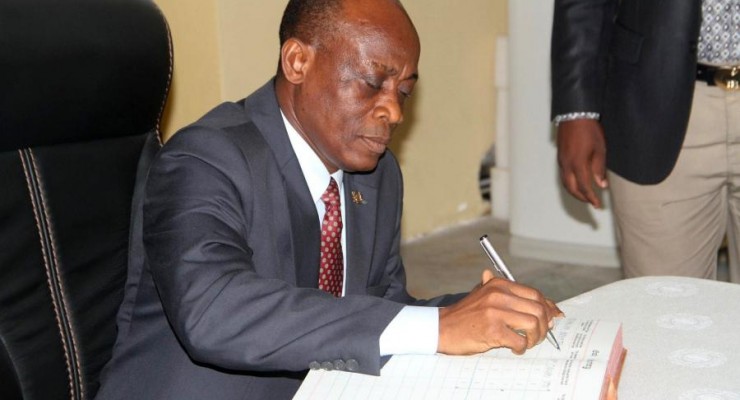Gov’t paid GH¢4,397m interest on loans
- Posted on
- Comment
 Government paid a total of GH¢4,397.0 million as interest on loans it accessed last year, 37.6 percent higher than the budget target of GH¢3,194.4 million.
Government paid a total of GH¢4,397.0 million as interest on loans it accessed last year, 37.6 percent higher than the budget target of GH¢3,194.4 million.
Of this amount, domestic interest payment constituted 86.2 percent, recording 47.2 percent, which was higher than the budget target.
On a year-on-year basis, domestic interest payments grew by 101.5 percent, representing very high domestic borrowing in 2013 to finance the deficit.
The Minister of Finance, Seth Terkper, presenting the mid-year budget and the macroeconomic targets for 2014 to Parliament yesterday in Accra, said high domestic interest rates, coupled with the continuous rise in the level of domestic borrowing to finance the budget over the years accounted for the ballooning of domestic interest cost.
To help contain expenditures and ensure the achievement of the fiscal deficit target for the year, he said his outfit introduced some revenue measures last year.
The measures, the Minister said, included agreement on a lower percentage increase in salaries compared to immediate past years; regular adjustment of fuel and utility prices to reduce subsidies to the barest minimum; and minimising the award of new contracts and contracting of new loans.
Mr. Tekper said these expenditure rationalisation measures helped to contain most expenditures within the 2013 total appropriation.
Government expenditures
He said total expenditure, including payments for the clearance of arrears and outstanding commitments for 2013 amounted to GH¢28,926.2 million (31.0% of GDP) as against a target of GH¢30,544.3 million (34.4% of GDP).
Mr Tekper said the outturn was 5.3 percent lower than the budget target and 14.3 percent higher than the outturn for the corresponding period in 2012.
“As a result of the shortfall in revenue and grants, government reduced spending on goods and services as well as other expenditure items.
“This led to total expenditures being lower than budgeted. Although overall spending was lower than planned, spending on wages and salaries as well as interest cost were higher than budgeted,” he said.
Mr Tekper said expenditure on wages and salaries for the period totaled GH¢8,242.9 million, which is 10.4 percent higher than the budget target of GH¢7,465.4 million and 23.7 percent higher than the outturn for the same period in 2012.
“In addition to this, an amount of GH¢1,065.0 million was spent on the clearance of wage arrears compared to GH¢1,872.0 million in 2012. Nonetheless, in 2013, expenditure on wages and salaries alone was 64.9 percent of non-oil tax revenue (excluding exemptions) and 61.2 percent of tax revenue (excluding exemptions)”, he said.
Including the wage arrears paid during the period, Mr Tekper said expenditure on wages was 73.2 percent of non-oil tax revenue (excluding exemptions) and 69.1 percent of tax revenue (excluding exemptions).
These ratios, he said, were significantly higher than the West African Monetary Zone (WAMZ) secondary convergence criteria of wage-to-tax revenue (excluding exemptions) ratio of 35 percent.
By Cephas Larbi










 (Selorm) |
(Selorm) |  (Nana Kwesi)
(Nana Kwesi)